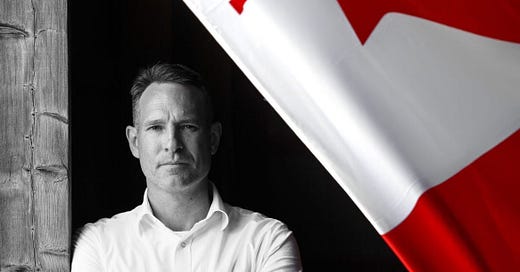Navigating Modern Masculinity and Femininity: “What is a Man”?
By Tom Marazzo, Captain (Ret’d) Canadian Army
In the ongoing discourse surrounding gender roles, the question of what it means to be a man or a woman looms large. As society evolves, so too do our perceptions and expectations of masculinity and femininity. Yet, amidst these changes, two critical issues persist within the family dynamic: the shift towards peer-oriented influence among children and the emasculation of men in society.
Peer Orientation vs. Adult Guidance:
Historically, children looked to adults for mentorship and guidance. However, societal changes, particularly the rise of dual-income households post-World War II, have led to a shift where children increasingly rely on their peers for direction. This phenomenon, known as peer orientation, undermines the traditional family structure and erodes parental influence.
The book "Hold On to Your Kids" by Dr. Gabor Maté underscores the detrimental effects of peer orientation and offers practical advice for parents to reclaim their pivotal role in their children's lives. By nurturing strong familial bonds and prioritizing adult mentorship, parents can counteract the negative influences of peer culture, fostering healthier relationships and guiding children towards positive development. I highly encourage you to read this book.
The Emasculation of Men:
Simultaneously, society grapples with the emasculation of men—a crisis rooted in the diminishing portrayal of masculine strength and resilience. Men today face societal pressures to conform to outdated stereotypes or risk being marginalized. This narrative belittles their inherent worth and suppresses their individuality, perpetuating a cycle of harm to manhood.
It's crucial to reject the notion that masculinity is inherently toxic. Instead, we must redefine and reclaim masculinity by encouraging men to embrace their fundamental strengths and virtues. True masculinity is not about dominance or aggression but encompasses traits of resilience, physical strength, and moral integrity.
The irony is stark: while the selection of a mate by a female is often predicated on the selection of traits that closely match those of an Alpha Male, society's current narrative suggests that women should aspire to be the Alpha. This incongruity creates a dissonance in societal expectations, leaving women feeling unsure of the role and value of men in their relationships. This did not happen in generations past!
Historically, females have been naturally inclined to select partners who exhibit traits associated with strength, leadership, and protection—qualities traditionally attributed to the Alpha Male archetype. Yet, contemporary societal norms often devalue these very traits, promoting a narrative that undermines traditional masculinity and urges women to adopt more dominant roles.
Keep reading with a 7-day free trial
Subscribe to Tom’s Newsletter to keep reading this post and get 7 days of free access to the full post archives.



